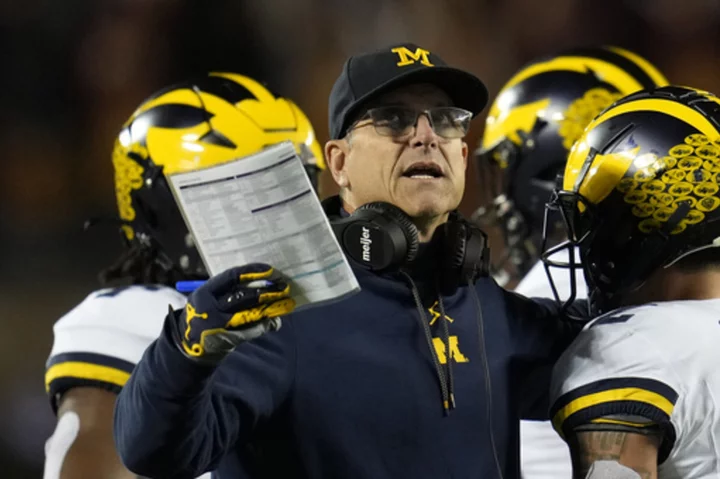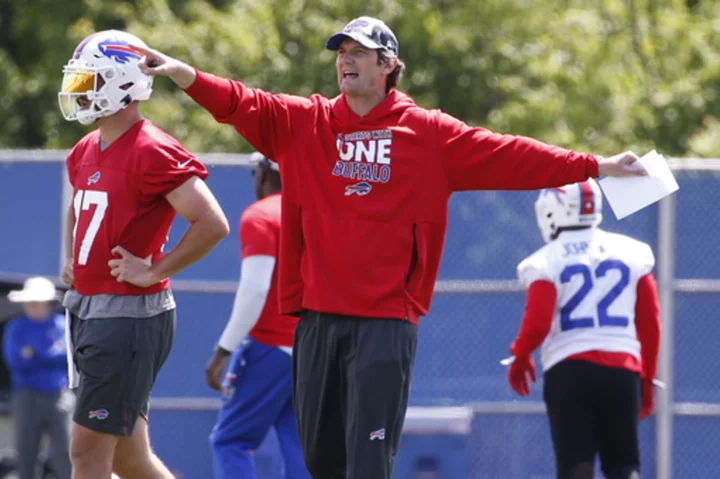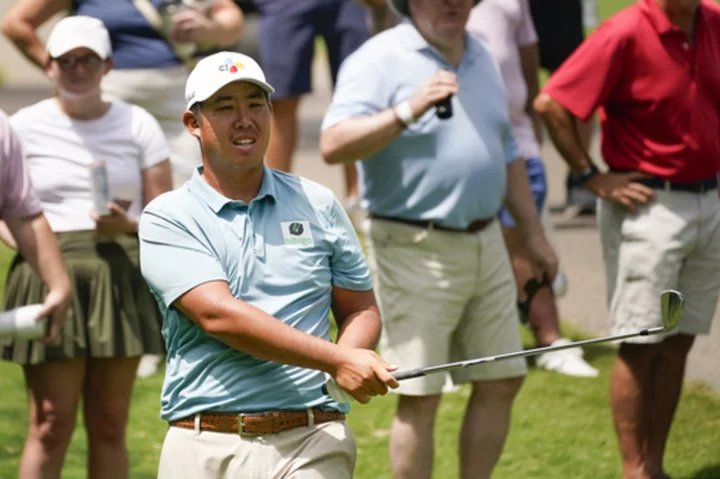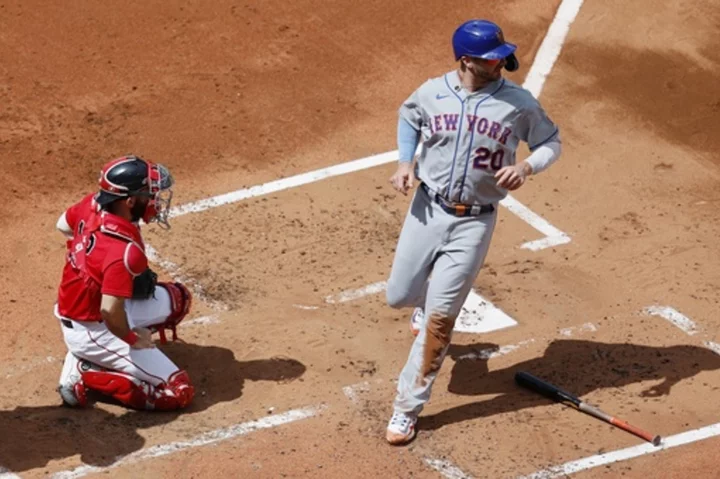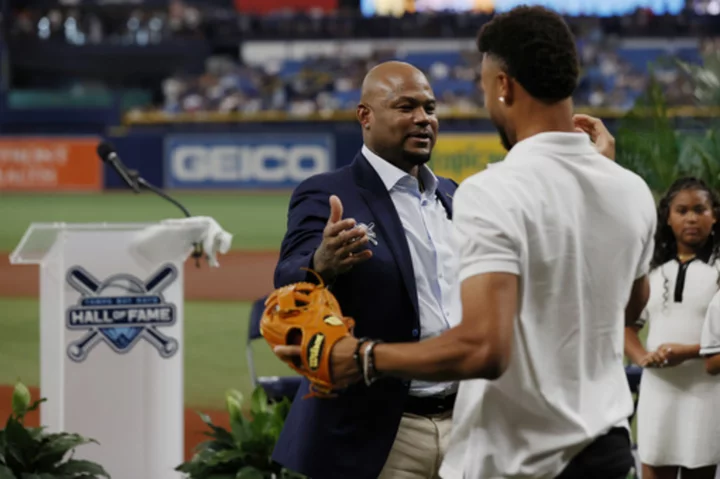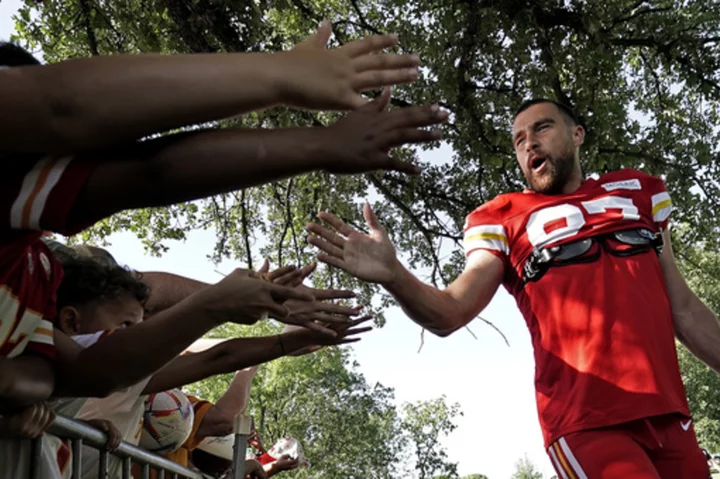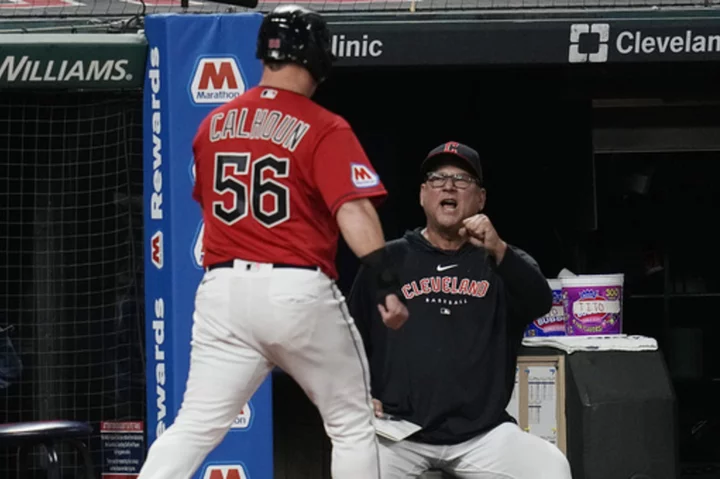Those absurd signs they hold up on the sidelines — displaying everything from emojis to superheroes to Bluto from “Animal House” — show just how far college football is behind the times.
Which makes the signal-stealing scandal at Michigan seem downright quaint.
And so unnecessary.
College football, which rakes in billions and billions of dollars like an insatiable Pac-Man (also coming to a sideline sign near you, we presume), should simply follow the NFL’s longstanding method of sending in plays.
If the quarterback and a defensive player on each team had an electronic device in their helmets, we wouldn't be dealing with this nonsense.
The coaches would simply send in their calls through good ol' technology, which actually dates to the mid-1950s when a pair of Ohio inventors came to innovative Cleveland NFL coach Paul Brown with a radio receiver they had developed.
Instead, college football wound up with a thoroughly avoidable mess on its money-grubbing hands as Michigan, the No. 2 team in all the land, stands accused of having a low-level staffer arrange to scout opponents' games in order to video their signals ahead of playing the Wolverines.
“That's why you should have mics in the helmets,” Nebraska coach Matt Rhule said, holding up his arms to mimic the current ridiculousness. “We could get rid of all the stupid signs on the sidelines. We could get (rid of) pictures of rock stars and all that stuff. We could just play football the way it's meant to be."
That would've been a perfectly reasonable approach.
College football chose to keep its head in the sand.
And now, when we should be focused on all the riveting games to come in the final weeks of the regular season, the conference championships game and who makes the College Football Playoff, we're dealing with this.
The Big Ten announced Friday that Michigan's Jim Harbaugh, who has rather ludicrously claimed to have no idea what was going on, will be banned from coaching the final three games of the regular season.
That would keep him off the sideline for two huge games: a contest Saturday against No. 9 Penn State and the Nov. 25 showdown against No. 3 Ohio State, two games that will surely go a long way toward determining who's left standing for the four-team playoff.
This is no defense of Harbaugh, but college football's intransigence is the real issue here.
The NFL is coming up on the 30th anniversary of allowing quarterbacks to use a radio-equipped helmet to communicate with the sideline, eliminating the need to send in plays via signals or substitutions. Fifteen years ago, the pros expanded the system to permit use by a defensive player.
Why, in all that time, hasn't such an obvious, well-tested system found its way to college football? Especially with the rising popularity of no-huddle, up-tempo offenses, which has put an added burden on the cumbersome process of signaling in plays?
The powers-that-be keep pointing to concerns that the wealthiest programs could gain a competitive advantage, but the NCAA could surely provide the necessary regulation to ensure all top-division schools were using the same system.
At the very least, it should be the norm in the Power Five conferences, which are essentially NFL franchises that don't have to pay their players, rolling in more money than they know what to do with.
“There are people who can afford to do these kinds of things, and they're the great programs that a lot of people watch on TV,” Alabama coach Nick Saban told “The Pat McAfee Show” on ESPN. ”For those who play in leagues like we do, who have the funds to do it in the SEC or the Big Ten or the Big 12, whatever it is, we should be able to do it."
Frankly, if schools had spent a fraction of the time they've devoted to nonsensical realignment and landing the next mega-television deal, this potential problem would've been resolved years ago.
Which makes it hard to take the uproar over Michigan's actions all that seriously, given signal-stealing has long been an accepted part of the game and we're not sure how much of an advantage there is to be gained anyway.
Hall of Famer and former Oklahoma coach Barry Switzer had the appropriate reaction.
“I laugh about it. I think it’s funnier than hell," Switzer said last weekend. “That don’t have a damn thing to do with who wins the game or how you play the game. You know, my practices were open. I didn’t give a damn who came and watched my practice. ... All they had to do was look at film to know what the hell we were going to do. We were going to do the same thing every damn week.”
Sadly, college football decide to stick with its outdated ways and ended up with a likely court battle — and a ludicrous scandal we could all do without.
___
Paul Newberry is the national sports columnist for The Associated Press. Write to him at pnewberry@ap.org
___
AP Sports Writer Cliff Brunt in Norman, Oklahoma contributed to this report.
___
Get alerts on the latest AP Top 25 poll throughout the season by signing up here. AP college football: https://apnews.com/hub/ap-top-25-college-football-poll and https://apnews.com/hub/college-football

